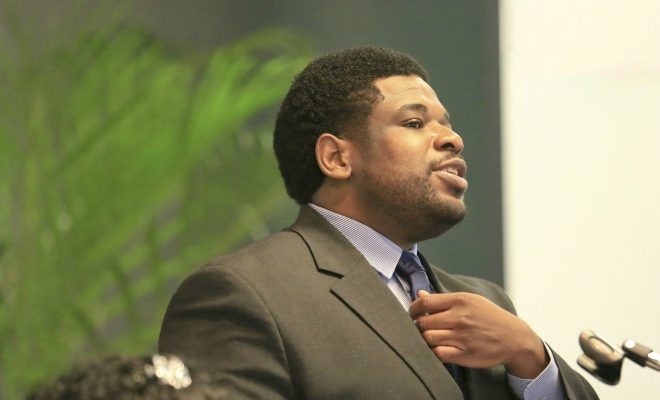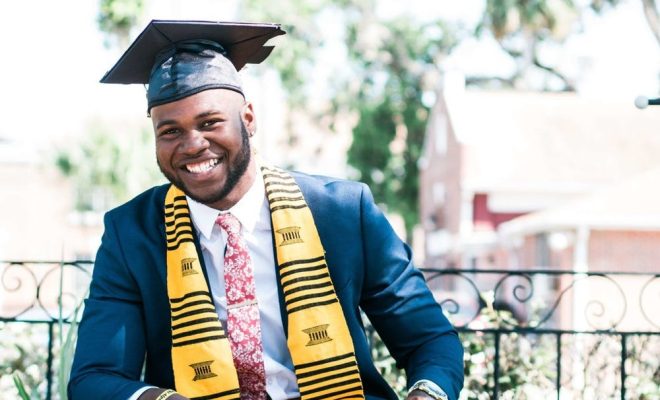What if K-12 Education Were More Like Preschool?

Wouldn’t it be wonderful, after all, if high school students were as deeply absorbed in their ‘work’ as five-year-olds are in their play? – Deborah Meier
The other day, a colleague and I preparing for a conference workshop gave ourselves some time to ask ourselves a number of the 30,000-foot questions we rarely take the time to ask. I found myself fascinated by how rarely in our national dialogue about K-12 school reform – dominated by a myopic, nostalgic, and restrictive construct of “college readiness” entrenched by federal education policy and public education debate — we ever dare to pose critical questions about learning theory or teaching practice in college settings; just what K-12 schools are preparing children to accomplish in college; just what colleges are doing to attend to the demonstrated learning needs of their students; or exactly what relevance much of college learning brings to bear either on the developmental needs of young adults enrolled in college, their discovery of joy and purpose, or their fitness for engagement in a democratic society.
Instead, we tend to wed ourselves to sweeping assumptions about the nature and propriety of college-level academic readiness, uncritically accept the principles embedded in it, and plan backwards from that unexamined construct of ‘college readiness’ in all the grade levels that precede it. K-12 education has become as a result, in the public imagination and in many of our schools, an elaborate dress rehearsal for a show that might not, at the end of the day, be particularly well-conceived, written, directed, or produced. But who can tell for sure?
In the shadow of national anxiety about ‘college readiness’ — in which many of us spend our time assessing how well our K-12 schools prepare children for college learning by determining how much their current learning resembles it – I have long found Deborah Meier’s account of the formation of the Central Park East schools a dynamically different challenge and welcome inspiration. When I first landed on these lines from The Power of Their Ideas a few years back, for example, something changed forever in the way I think about teaching and learning:
Just as our elementary school was based on the idea of keeping the traditions of kindergarten going through the sixth grade, so for our secondary school we largely imagined our task as keeping the spirit of kindergarten going for a few more years. I do not mean this to sound condescending or belittling. I see the spirit I’m referring to as fundamental to all good education; wouldn’t it be wonderful, after all, if high school students were as deeply absorbed in their “work” as five-year-olds are in their “play”? (p. 47)
Meier concedes that “I speak here of an old-fashioned kindergarten, one that doesn’t look like first grade” (48), and from that – as well as the increasing and regrettable insistence in recent decades that kindergartens should look more like first grade — I have taken license to ask some of the same questions about preschool and the influence it could bring to bear on older students’ learning.
In the last several weeks I’ve been spending some of my time with kindergarten and 1st grade teachers at a progressive elementary school, helping them explore together how documentation practices and collaborative inquiry protocols, adapted from the Reggio preschool model, can deepen their learning, teaching, and professional collaboration. On other days, I’ve been spending time at an extraordinary Reggio-inspired preschool – observing highly skilled teachers in practice, and participating in shared inquiry and reflection after hours – to learn how such practices are implemented among younger learners still. In off hours, I find myself – as someone who has long been preoccupied by the work of Project Zero in collaboration with leaders of the Reggio Schools since I first stumbled upon Making Learning Visible — continually thinking about how elementary, middle, and high school teaching and learning could be deepened by an explicit understanding, appreciation, and extension of practices in early learning. And in my continued research, I’ve been thinking about the ways these practices represent a dramatically more authentic and effective alternative – in their acuity, their intentionality, their integrity, and their transparency – to many of the problematic notions embedded in current constructs of ‘accountability.’
All the while, I find myself remembering the way that Deborah Meier framed both a construct of early learning, the immense power it brings to bear on our conceptualization of older students’ learning, and the remarkable prospects these principles invite in K-12 schools in a time of transformative change: not only the prospect of more engaged, joyful, and purposeful learning, and not only the prospect of more inclusive, democratic, and devoted learning communities, but also the promise of deeper, richer learning and the extraordinary academic achievement that — ironically, perhaps — inevitably emerges from it. For these reasons I wanted to share an extended passage from The Power of Their Ideas to invite your reflection:
Kindergarten is the one place— maybe the last place— where teachers are expected to know children well, even if they don’t hand in their homework, finish their Friday tests, or pay attention. Kindergarten teachers know children by listening and looking. They know that learning must be personalized because kids are incorrigibly idiosyncratic… Kindergarten teachers know that helping children learn to become more self-reliant is part of their task—starting with tying shoes and going to the bathroom. Catering to children’s growing independence is a natural part of a kindergarten teacher’s classroom life.
This is, alas, the last time children are given independence, encouraged to make choices, and allowed to move about on their own steam. The older they get the less we take into account the importance of children’s own interests, and the less we cherish their capacity for engaging in imaginative play. (In fact, we worry in kindergarten if children lack such capacity, while later on we worry if they show it too much.) In kindergarten we design our rooms for real work, not just passive listening. We put things in the room that will appeal to children, grab their interests, and engage their minds and hearts. Teachers in kindergarten are editors, critics, cheerleaders, and caretakers, not just lecturers or deliverers of instruction. What Ted Sizer calls “coaching” is second nature in the kindergarten classroom.
A good school for anyone is a little like kindergarten and a little like a good post-graduate program— the two ends of the educational spectrum, at which we understand that we cannot treat any two human beings identically, but must take into account their special interests and styles even as we hold all to high and rigorous standards…. We don’t need research on this astounding proposition. (pp. 48-49)
Many of the moments that have particularly captivated me in recent weeks have emerged from intentional dialogue with teachers about the relational elements of children’s learning: purposeful efforts by educators to learn more about individual children’s unique needs and challenges in the context of our relationships with them, and equally purposeful observation and interpretation of children’s dispositions and behavior in their relationships with each other. This makes me wonder—among many other things—just how much we’ve sacrificed in supporting students’ learning, to say nothing of the fullness of their and our humanity, to the altar of academic ‘excellence’ as it’s conventionally constructed, and the slippery signifier of ‘college readiness’ as it currently dominates debate about school reform.
I hope to explore emerging and related questions more in the weeks and months to come. For now, my primary purpose was to share this compelling passage from Meier’s work and to invite your thoughts.
What do we know about children that we have neglected to honor in our commitments to traditional notions of academic excellence? What parts of this collective knowledge must we recapture and reintegrate? How might we draw on early learning practices to enrich students’ social, academic, and ethical development in K-12 schools in the years to come?
What if K-12 education were more like preschool?
Reference:
Meier, D. (2002). The power of their ideas: Lessons for America from a small school in Harlem. New York: Beacon Press. (Original work published 1995)
____
Chris Thinnes is a veteran independent school leader, an active collaborator with educators from the private and public sectors, and an engaged public school parent. In the 2013-2014 school year, he was honored as a Fellow of the Martin Institute for Teaching Excellence, named one of Carney Sandoe’s “8 Thought Leaders to Follow Now,” and featured as a panelist for the ASCD Whole Child Town Hall.
This post originally appeared on chris.thinnes.me and was republished with permission.






